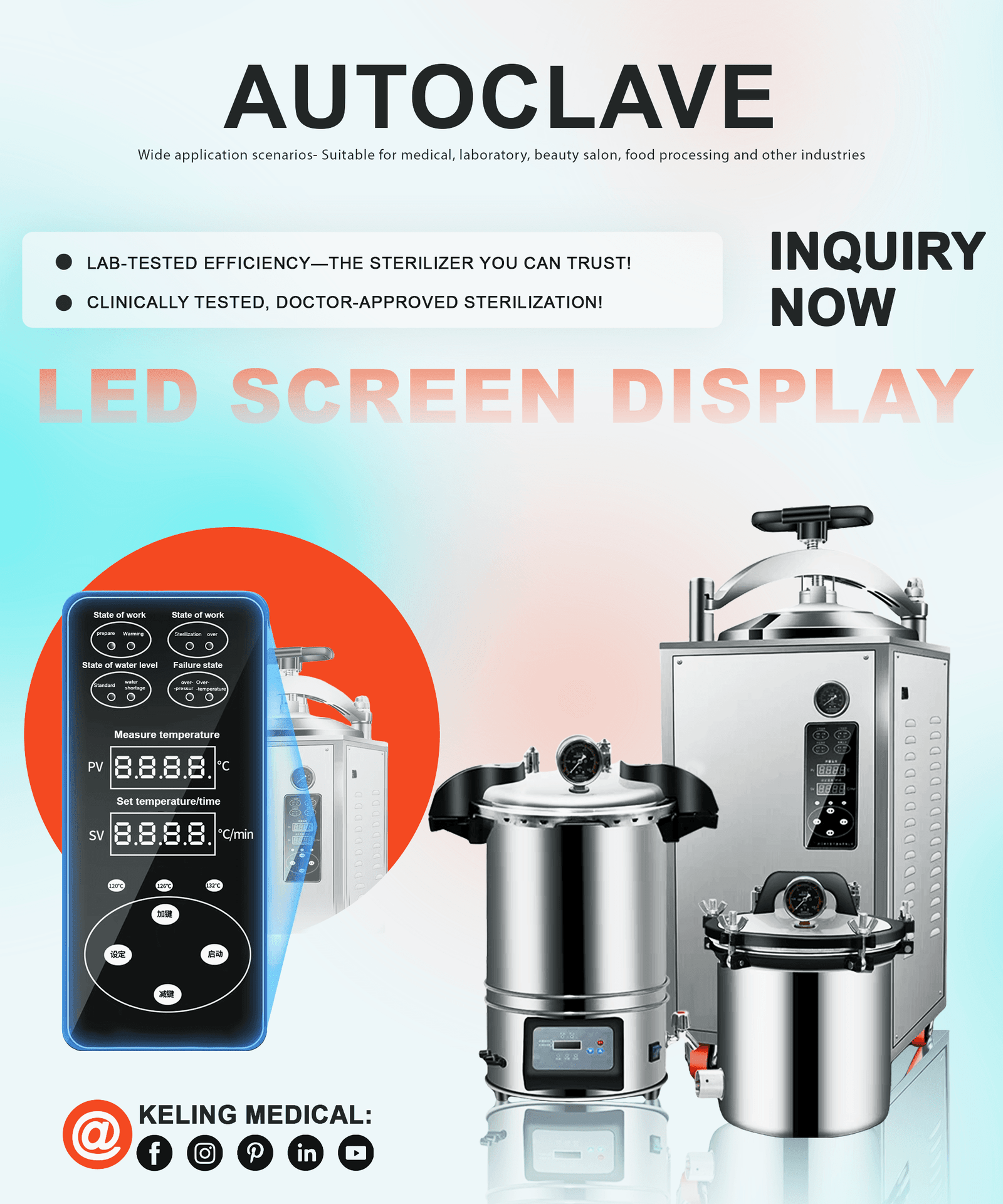
When selecting an autoclave distributors and business owners together with procurement professionals must consider performance durability and cost as essential factors. This article examines the elements that determine industrial autoclave pricing while providing information about price ranges and guidance for selecting high-quality yet affordable autoclave solutions.
The cost of industrial autoclaves is determined by multiple contributing factors ranging from size to automation level.
Multiple elements such as autoclave dimensions and automation features play a role in determining its price. The following factors determine the total cost of an industrial autoclave:
Autoclaves with bigger sizes and greater capacities demand higher prices.
The measurement of autoclave capacity occurs in liters or cubic meters which leads to increased pricing for models that can accommodate larger loads.
Autoclaves constructed from top-grade stainless steel or corrosion-resistant materials demand higher costs yet deliver improved durability and extended service life.
Costs rise when materials can endure extreme pressure and temperature conditions.
Programmable cycles together with real-time monitoring and automatic controls increase the overall price.
The incorporation of specialized features such as vacuum pumps along with rapid cooling systems and multi-door configurations contributes to higher pricing.
Autoclaves with full automation and little manual input cost more compared to semi-automatic or manually operated versions.
Over time automation leads to better efficiency and lower labor expenses.
Energy-efficient models have higher initial prices but provide long-term savings due to decreased utility costs.
The construction of specialized autoclaves that fulfill particular industry requirements including unique chamber sizes or loading systems results in premium pricing.
Industrial autoclaves created by well-known manufacturers who provide safety compliance certifications tend to carry higher price tags.
Certification demonstrates that the autoclave complies with both industry standards and regulatory requirements.
The market offers industrial autoclaves with diverse configurations and capacities at different price levels.
Different sizes and configurations of industrial autoclaves result in diverse pricing structures. The following summary presents typical price ranges for industrial autoclaves:
Capacity: 50–200 liters
Price Range: $5,000–$20,000
Small industrial autoclaves serve laboratory functions alongside clinical and small-scale operational demands.
Capacity: 200–1,000 liters
Price Range: $20,000–$80,000
Mid-sized businesses can use these autoclaves for food processing and medical waste sterilization tasks.
Capacity: 1,000 liters and above
Price Range: $80,000–$500,000+
These autoclaves serve high-volume industries including aerospace production and large-scale manufacturing operations.
For more details on large autoclaves, check out our article on Large Industrial Autoclaves.
The process of choosing an industrial autoclave requires balancing between budget constraints and operational functionality. Follow these guidelines to enable you to reach an informed decision.
Identify the necessary dimensions and processing abilities needed for your operational requirements.
Make sure the autoclave you select can handle the materials you need to sterilize or process.
When selecting features concentrate on those which enhance your operation efficiency like automation capabilities and energy-saving functions.
Avoid overpaying for unnecessary add-ons.
Take into account the entire ownership cost by evaluating maintenance expenses along with energy consumption and operational efficiency.
Energy-efficient models require more money for purchase but result in savings throughout their lifespan.
Get price and feature comparisons by asking different suppliers for quotes.
Make sure the provided quotes cover both installation and training as well as after-sales support.
The autoclave should have appropriate industry certifications and meet all safety and performance standards.
When your business experiences growth ensure you choose an autoclave designed to handle future capacity needs.
For a detailed breakdown of autoclave costs, visit our guide on Industrial Autoclave Cost.
Identifying the determinants that affect the cost of industrial autoclaves enables buyers to make economically sound decisions. The final cost of an autoclave depends on various factors including its size and material to its features and automation capabilities.
Evaluating your operational requirements and essential features enables you to purchase an autoclave which provides financial value and satisfies industry standards. Distributors, procurement professionals and business owners need to select an autoclave that serves as a lasting investment in operational efficiency and regulatory compliance.
Keling Medical provides diverse industrial autoclave options customized to meet your particular needs. Reach out to us now to discover our product offerings and pricing details.
The price of an industrial autoclave can range from $5,000 to over $500,000, depending on its size, features, and level of customization.
While larger autoclaves have a higher upfront cost, they are more cost-effective for high-volume operations due to their capacity and efficiency.
Invest in energy-efficient models, schedule regular maintenance, and choose a model with features that match your operational needs.
Most suppliers offer warranties that cover parts and labor for a specific period. Always confirm warranty terms before purchasing.
You can contact Keling Medical for a tailored quote based on your specific requirements.
For more information about industrial autoclave prices or to request a quote, contact us today:
Email: inquiry@shkeling.com
WhatsApp: +8618221822482
Website: https://autoclaveequipment.com/
Our team at Keling Medical is ready to assist you with all your industrial autoclave needs.

The autoclaving process serves as an essential sterilization practice utilized across medical, laboratory, and research facilities to protect glassware and instruments through effective sterilization. High-pressure steam eliminates pathogens during this

The autoclaving process serves as an essential sterilization practice utilized across medical, laboratory, and research facilities to protect glassware and instruments through effective sterilization. High-pressure steam eliminates pathogens during this
The autoclaving process serves as an essential sterilization practice utilized across medical, laboratory, and research facilities to protect glassware and instruments through effective sterilization. High-pressure steam eliminates pathogens during this
The autoclaving process serves as an essential sterilization practice utilized across medical, laboratory, and research facilities to protect glassware and instruments through effective sterilization. High-pressure steam eliminates pathogens during this
The autoclaving process serves as an essential sterilization practice utilized across medical, laboratory, and research facilities to protect glassware and instruments through effective sterilization. High-pressure steam eliminates pathogens during this
The autoclaving process serves as an essential sterilization practice utilized across medical, laboratory, and research facilities to protect glassware and instruments through effective sterilization. High-pressure steam eliminates pathogens during this